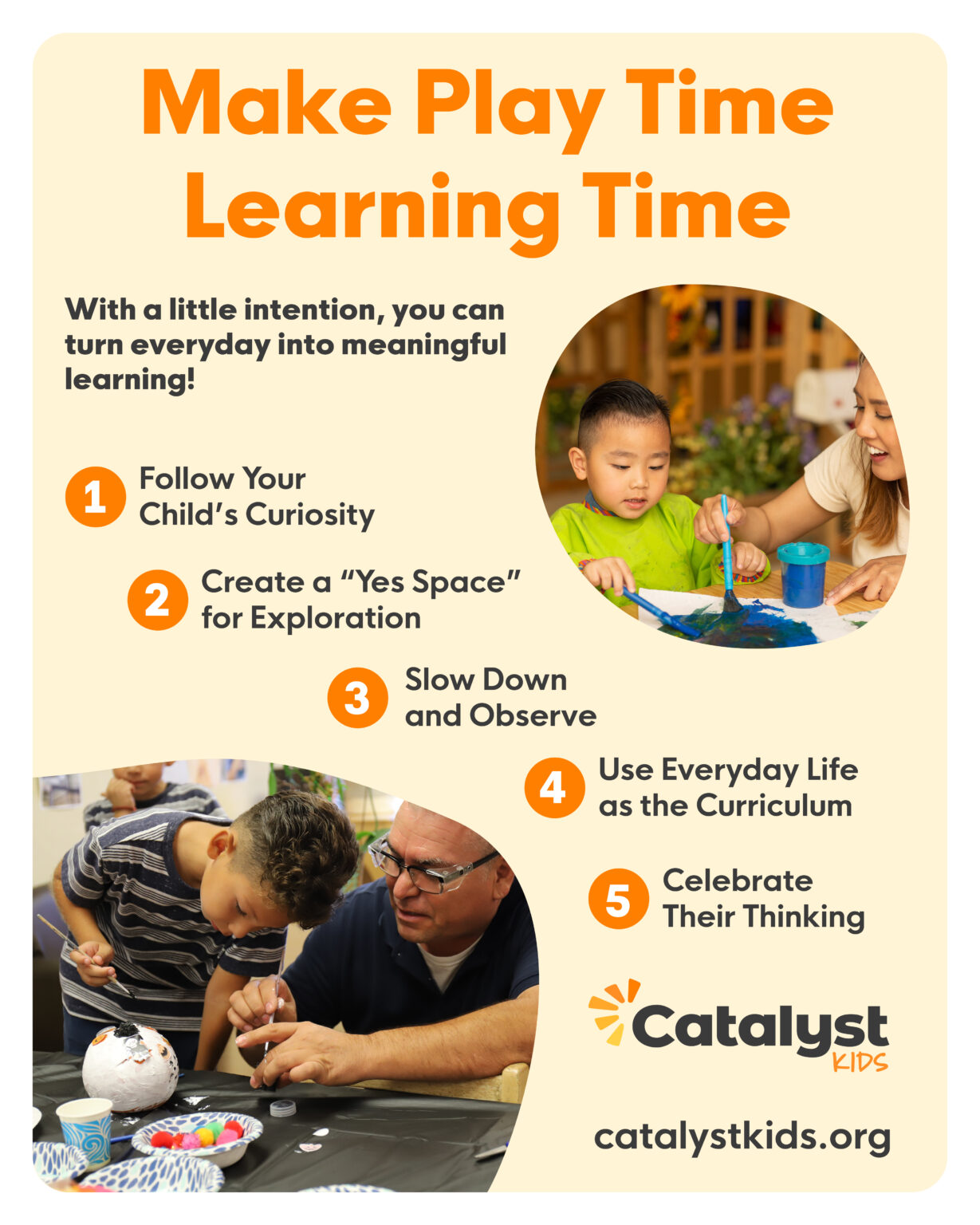October 17, 2025
Make Play Time Learning Time
Did you know that some of the most powerful learning happens when children are simply playing?
At Catalyst Kids, we follow the Reggio Emilia approach, a philosophy of early childhood education that believes children are capable, curious, and full of potential. In this model, play isn’t a break from learning, it is learning. And the best part? You can bring this same approach into your home.
Whether you’re a working parent, a caregiver, or someone balancing a tight budget, here are ways to turn everyday moments into meaningful learning.
1. Follow Your Child’s Curiosity
In Reggio Emilia, children are seen as active participants in their own learning. Instead of leading with answers, we follow their questions.
Try This: If your child shows interest in bugs, grab a jar and explore the backyard. Look closely, ask questions like “What do you notice?” or “Where do you think they sleep?” You’re not just playing, you’re nurturing science, language, and critical thinking skills.
2. Create a “Yes Space” for Exploration
You don’t need expensive materials to create a Reggio-inspired play area. A corner of your room with paper, string, natural objects (like leaves or rocks), and open-ended items like cardboard boxes can become a world of discovery.
Why it matters: The environment should spark imagination and allow kids to direct their play. At home, that might look like a simple basket of loose parts that they can build, sort, or tell stories with.
3. Slow Down and Observe
Instead of rushing through activities, pause and notice what your child is doing. Ask open-ended questions. Take photos of their creations. These moments help children reflect and feel that their ideas matter.
Bonus Tip: Keep a small “learning journal” with your child. They can draw pictures of what they did or dictate a few sentences to you. It builds language and self-expression.
4. Use Everyday Life as the Curriculum
The Reggio approach values real-world experiences. Watering plants, helping cook, or walking to the market all provide chances to learn about math, science, language, and social skills.
Example: Measuring rice for dinner becomes a lesson in volume and fractions. Sorting laundry teaches categorization and responsibility.
5. Celebrate Their Thinking
Rather than focusing on “right answers,” celebrate their thinking process. If they build a tower and call it a spaceship, ask, “What planets will it visit?” This fuels their imagination and confidence.
You’re Already Doing More Than You Think
Parents are children’s first teachers and every question you answer, every moment you play, is building a foundation for lifelong learning.
At Catalyst Kids, we bring the Reggio Emilia philosophy to life in our programs. We offer hands-on, child-led learning environments where every child’s voice is valued and we make it affordable for families through state subsidies and flexible options.
Play is powerful. Let’s use it to build curiosity, confidence, and community.
